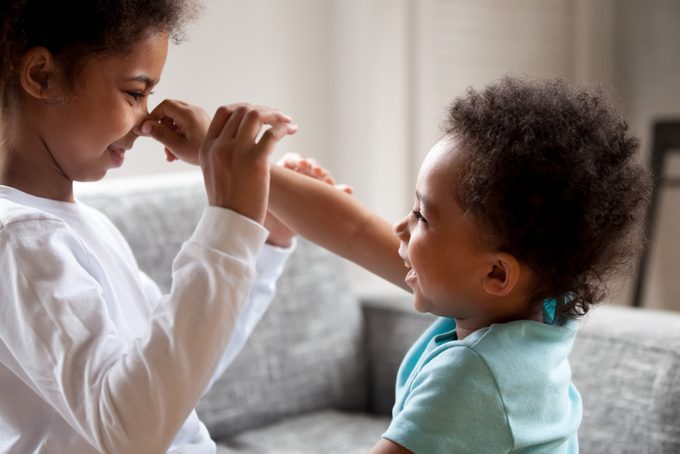Not being able to smell when you have B.O. is actually a good thing!
This Is Why You Can’t Smell Yourself

You can smell grass after your neighbor cuts the lawn. You can smell delicious pizza baking as you walk by the pizza parlor. You can definitely smell the musty, sour smell of your brother’s feet when he takes off his sneakers on a sweaty summer day. In fact, according to research published in Nature, your nose can detect about one trillion smells!
But your own underarms could reek and you might not be able to tell: Humans are prone to what scientists call olfactory fatigue; our sense of smell just gets plain tired out by familiar odors and stops detecting them. Believe it or not, that can actually be a good thing. By the way, you may want to avoid the 8 foods that actually make you smell bad.
Pamela Dalton, a psychologist at the Monell Chemical Senses Center in Philadelphia, explained to the Washington Post that we filter out the same-old smells to make room for detecting new, strange smells—such as ones that might alert us to danger, like something burning, or something good to eat like that pizza. When these smells waft past us, smell receptors in our noses detect their particular chemical components and send electrical signals to the frontal cortex of our brains. And then we decide if we need to run away (from fire), or run closer (towards pizza).
If your sense of smell was bogged down by your B.O.—or other standard smells—we might not be able to detect the more important odors. You may want to check out 6 sneaky reasons your B.O. is worse than usual.
There are ways to avoid showing up to school reeking like a skunk. One way is to take your shirt off and sniff that instead of your skin, recommends Lifehacker. Other ways to check your own scent is to rub your scalp, then smell your fingers; check your breath by licking your arm, waiting a second, then sniffing the spot. Or even quicker and easier—ask your parent to give you a whiff!




















